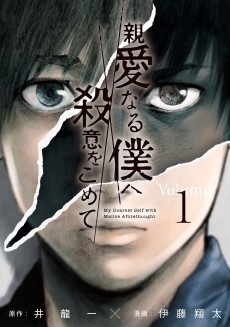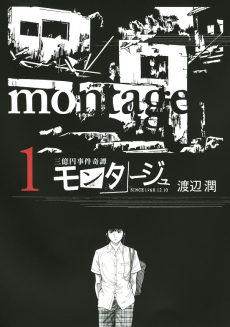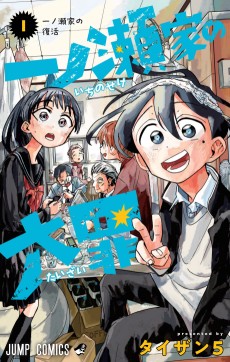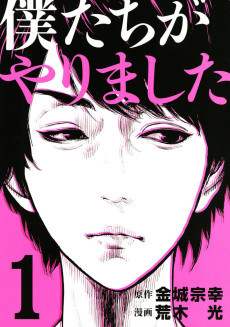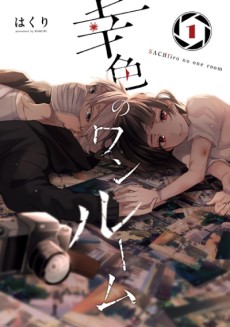KIMI GA BOKURA WO AKUMA TO YONDA KORO
STATUS
COMPLETE
VOLUMES
14
RELEASE
August 5, 2020
CHAPTERS
154
DESCRIPTION
Yusuke Saito is a normal high school kid...well, normal enough, though there's six months missing out of his memory. But when he starts to get confronted by people who insist they're from his past, who allege that he did horrible things to them...suddenly Yusuke realizes that those missing six months may be crucial to remember. Otherwise, the skeletons in his closet may just make him a skeleton, too...
(Source: Kodansha USA)
CAST
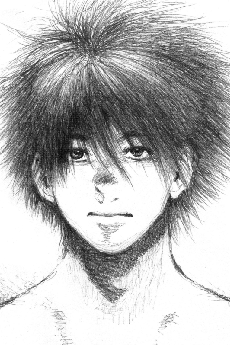
Yuusuke Saitou
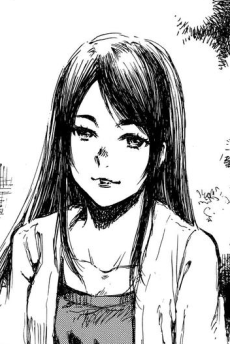
Akari Ichinose
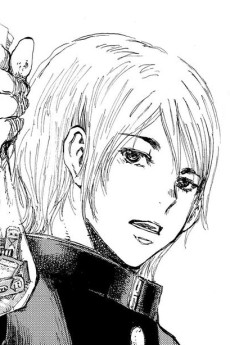
Youjirou Aizawa
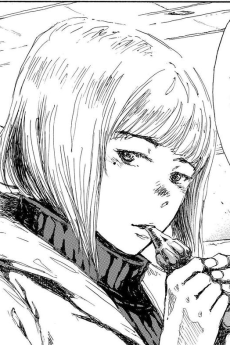
Sumire Okazaki
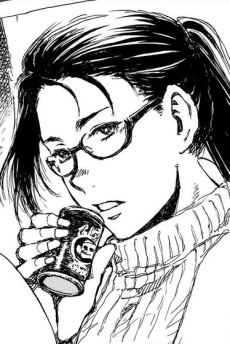
Natsuki Onda
CHAPTERS
REVIEWS

satsukiseyebrows
94/100a manga that haunts meContinue on AniListKimi ga Bokura wo Akuma to Yonda Koro is a manga that haunts you after you read it. It's easy for manga to include dark topics for shock value, but Kimi ga Bokura wo Akuma to Yonda Koro is unique in that not only does it refuse to shy away from topics many would be hesitant to touch, it also isn't afraid to display these topics in their entirety. There is no romanticization or ecchi-ification of the darkest scenes in the manga - assault is portrayed as assault. Even with these bleak declarations, the manga finds a way to force the reader to look cruelty in the eye and ask themselves how they would define "justice", "forgiveness", and "humanity." In doing so, the manga lingers with you long after you've read it; the unclear messaging forcing the reader to create their own beliefs to abide by.
At the crux of the story is whether or not Saitou Yuusuke's crimes can be forgiven. While the answer, a very obvious "no", is entirely decided within the first few chapters, the manga spends 14 volumes and 154 chapters asking the reader how far we can stretch this "no". Does guilt resolve someone of their sin? Does the previous question depend on the severity of the sin? If yes, how do we weigh one sin against another? If there is weight to a sin, can an act of virtue repay the debt? If an act of virtue cannot repay the debt, then can we even say there is weight to the sin? If there is no weight to sins, how does one move forward? How does one keep living? How can one keep living? Does one have an obligation to keep living? Is it up to the perpetrator to hold onto the guilt as an act of retribution? What does it truly mean to do something "unforgivable" and what are the connotations of that?
Kimi ga Bokura wo Akuma to Yonda Koro doesn't answer any of these questions. Instead, the manga, spread across 14 volumes, lets readers make their own judgments on right and wrong. The synopsis provided for the manga is a bit misleading - only volumes 1 through 3 follow Yuusuke's journey to discover the missing six months of his memory. The following parts of the review contain spoilers:
The exposition of the story is fast paced, we learn within the first five chapters that (1) Yuusuke has lost his memory (2) he has allegedly done unforgivable crimes in the past and (3) there is one crime in particular that is particularly heinous. We then follow Yuusuke as he tries to re-remember all the bad things he has done, with the help of his previous right-hand-man and "best friend", Aizawa Youjirou... who is both victim and perpetrator.
Already within these first three volumes, we are confronted with questions of identity. The mangaka invites us to wonder: can we decouple the Yuusuke of the past from the current Yuusuke? If the current Yuusuke has none of the memories of the past Yuusuke, can they even be considered the same person? Are memories what constitute a person's identity? All of these questions simultaneously fuel Yuusuke's frantic search for himself - although, there is also a lingering fear that the person he realizes himself to be is not one he will like.
Volumes 4 and 5 go greater in depth about Yuusuke's relationship with the specific victim of his most heinous crime and we are introduced to Ichinose Akari. Akari is an interesting character in that the way she was written moves feminism in a weird direction - neither forwards nor backwards, but perhaps sideways. Akari refuses to bow to Yuusuke and quickly becomes his favorite victim because of it. This culminates in Akari's pregnancy and forced abortion at the hand of Yuusuke's gang, but the two's relationship does not end here. Still unwilling to have her spirit broken, Yuusuke finds himself in a cat and mouse game with Akari, trying to see whether Akari will break first or if Yuusuke will eventually feel guilt from spending so much time with her.
The two end up running away together to a village, where they masquerade as a couple. This is where Akari as a character gets murky. Again, this is where the manga particularly excels - it creates these scenarios where on the surface, the answer appears obvious, but invites us to stare even closer. The obvious answer remains obvious - but Akari is a victim of abuse throughout her life and Yuusuke's crimes towards her are unforgivable - there is another layer on top of this fact: the time the two spend together as a (fake) couple is still a brief moment of peace in Akari's otherwise tumultuous life. In doing so, we are again forced to look tough questions in the eye, but perhaps this time on an even more meta level. Does the mangaka have any responsibility in how he writes Yuusuke and Akari's relationship? Is their time together an unethical romanticization of abusive relationships or is it a deeply sad and accurate representation of how victims of abuse cling onto their abusers? Is Akari as a character flawed or is Akari flawed in how she is written?
In the end, there is no justice for Akari. She does not get to continue living in the fantasy world of the village. She does not get to see Yuusuke live out his entire life wallowing in the guilt she caused him. In a way, Yuusuke's guilt is more a shackle on her than Yuusuke - despite the guilt weighing on Yuusuke more, it traps Akari to him; she is forever stuck resenting Yuusuke and wishing for him to eternally feel guilt as heavy as her pain. Akari is a brilliant character - she takes the trope of women being used as props to depict a man's violence and rather than subverting the trope, pushes it past the boundary, asking us to fully understand the connotations the trope provides.
Volumes 6 through 10 follow Yuusuke through his adulthood. This is the second major section of Yuusuke's story; while the first five volumes focus on the several vaguely interconnected stories of Yuusuke's middle school and high school victims, these volumes follow Yuusuke's attempts at absolving himself of guilt through how he interacts with several newly introduced vaguely interconnected characters. There is an odd tonal shift in this section, with elements of murder-mystery added to bolster the story. While this weird light-heartedness makes certain chapters feel misplaced, the characters remain true to their characterizations. These middle four volumes are probably this manga's weakest point because of the shift in tone.
Volumes 11 through 13 once again focus in on a specific family that Yuusuke becomes entangled with. However, in a way, these volumes make up for the awkwardness of the middle sections by flipping the tonal shift on its head; the mangaka uses the built up tension that the murder-mystery genre is chock-full of to make readers question Yuusuke's character. We are essentially transported to the world of Kimi ga Bokura wo Akuma to Yonda Koro - we are just as confused as the characters around Yuusuke about whether he has truly "reformed" (in quotations as a quintessential question of this manga is whether or not people like Yuusuke can even be reformed) and we are forced to confront our own egos in whether or not we are allowed to be the arbitrators of whether or not he is a good person.
Volume 14 follows Yuusuke's death as the characters we've encountered across the course of the manga try to come to terms with how they feel about his moral character now that he is no longer a living being - essentially unchangeable. There is something morbidly beautiful about how Yuusuke leaves a hole in the lives of those he has affected both positively and negatively - his death is an inevitable conclusion the mangaka has built up to and, despite how unrewarding it feels towards the characters, their feelings of missing something in turn provide a sense of comfort to the readers. It's painfully realistic, Yuusuke's death is sudden and open-ended - it reflects the manga perfectly.
The last chapter of the manga is a perfect conclusion, all of Yuusuke's victims and all the people he has helped come together to admire a portrait of him. We see each character's individual reaction to the portrait one by one, with reactions ranging across the entire spectrum of emotion. The final panel shows us the work itself: Yuusuke's face, unsmiling and facing forward - there is no hidden metaphors or romanticizations in the portrait - inviting us as the audience to view Yuusuke simply as he is.
Kimi ga Bokura wo Akuma to Yonda Koro is a manga I cannot stop recommending. It is also a manga I am terrified other people will read - the open-endedness of the manga provides a reflective surface for readers to project their own ideals onto. There are so many different ways to interpret the mangaka's intentions, the characters' intentions. All in all, Kimi ga Bokura wo Akuma to Yonda Koro is a masterpiece in character studies.Recommendations
Unfortunately, I haven't read anything quite like Kimi ga Bokura wo Akuma to Yonda Koro and don't think I'll ever find something quite like it. Still, here are some honorary mentions for similar content:
https://anilist.co/manga/108952/Dwaejiuri/
Pigpen follows a very similar plot structure and tackles similar themes of guilt and who gets to decide justice.
https://anilist.co/manga/99346/Aonokun-ni-Sawaritai-kara-Shinitai/
I Want to Hold Aono-kun So Badly I Could Die has similar character relationships that make you question the line between unhealthy obsession and devotion, as well as challenging the line between romance and romanticization.
SIMILAR MANGAS YOU MAY LIKE
 MANGA DramaBoku wa Doko kara
MANGA DramaBoku wa Doko kara MANGA DramaAku no Hana
MANGA DramaAku no Hana MANGA DramaShounen no Abyss
MANGA DramaShounen no Abyss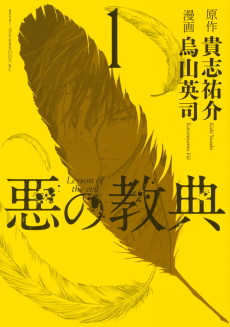 MANGA HorrorAku no Kyouten
MANGA HorrorAku no Kyouten MANGA ActionVinland Saga
MANGA ActionVinland Saga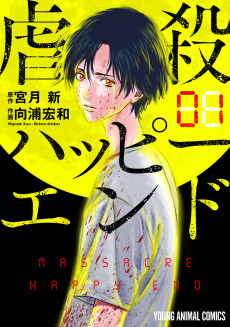 MANGA HorrorGyakusatsu Happy End
MANGA HorrorGyakusatsu Happy End
SCORE
- (3.8/5)
MORE INFO
Ended inAugust 5, 2020
Favorited by 154 Users


